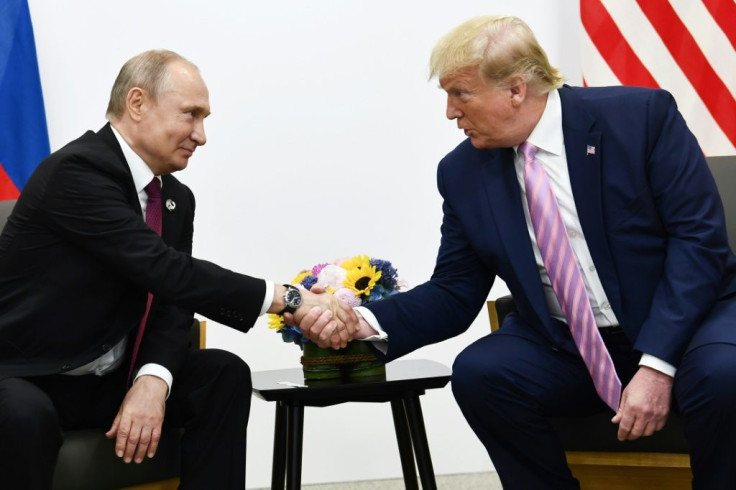Republican-led Probe Finds Russia Helped Trump In 2016

A Senate Republican-led investigation said in a report Tuesday that Russia indeed sought to help President Donald Trump in the 2016 election, contradicting persistent White House claims to the contrary.
The Senate Intelligence Committee's 2016 election investigation report said a sweeping social media manipulation campaign by the St. Petersburg-based Internet Research Agency (IRA) represented "overt support of Russia's favored candidate in the US presidential election."
"The committee found that the IRA sought to influence the 2016 US presidential election by harming Hillary Clinton's chances of success and supporting Donald Trump at the direction of the Kremlin," it said.
"IRA social media activity was overtly and almost invariably supportive of then-candidate Trump," it said.
The committee, led by Republican Senator Richard Burr, issued its report as Trump continues to insist that the story of Russian meddling is "fake news" and a "Russian witch hunt hoax" peddled by Democrats.
Trump and allied Republicans meanwhile are pressing an unsubstantiated theory that Ukraine colluded with Democrats to undermine Trump in 2016.
The collision of the two versions of what happened in the 2016 vote are at the center of the newest allegations that Trump has sought Ukraine's help to find dirt on his possible 2020 Democratic election challenger Joe Biden.
Trump is facing possible impeachment in the House of Representatives for seeking to involve Kiev in next year's election, and allegedly holding up military aid for the country to induce its help against Biden.
Democrats called the moves a repeat of 2016, when Trump's campaign allegedly sought Moscow's support to defeat Democrat Clinton.
Special Counsel Robert Mueller's investigation into that election found numerous instances of attempted collusion between the campaign and Russians, but inadequate evidence of an illegal conspiracy to do so.
The committee warned of a possible repeat of Russian meddling in next year's election.
"The executive branch should, in the run up to the 2020 election, reinforce with the public the danger of attempted foreign interference in the 2020 election," the report said.
© Copyright AFP {{Year}}. All rights reserved.





















